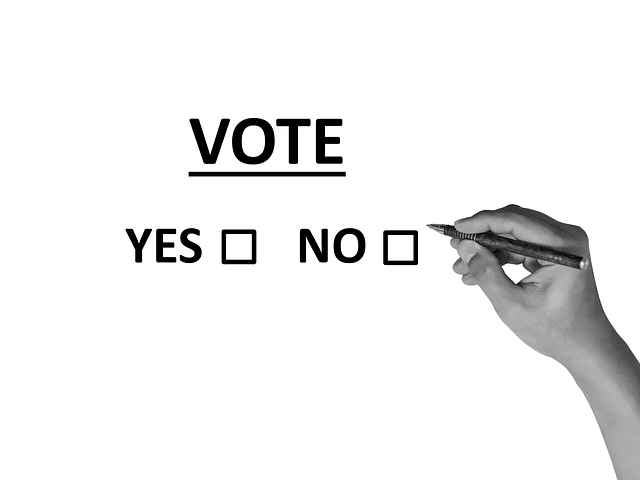With state and local midterm elections next month, it seemed appropriate to address the issue of voting and its biggest misconception.
Vote?
We frequently see public service messages telling people to “get out and vote”. It is not at all uncommon to hear radio talk show hosts tell us that the problems in our country are the result of voter apathy. Admonishing non-voters to vote sounds noble, but is it good policy? Do our nation’s problems really stem from electoral non-participation?
Let’s start by identifying the ultimate goal of our electoral process. Is our ultimate goal to achieve broad participation — or is our goal to make good decisions? If widespread participation is the ultimate goal, then we could mandate citizen participation in every election, but I seriously doubt that this would improve our government one bit. I would suggest that quality decisions are more important than the level of participation by voters. Therefore, widespread participation is, at best, secondary to our ultimate goal of good decision-making.
In general, there is little, if any, correlation between the number of decision makers and the quality of a decision. If you are very sick and need a medical diagnosis and appropriate treatment for your illness, would you prefer the diagnosis and treatment decided by a majority vote of 100 average people or would you prefer the diagnosis and treatment of one skilled and trained physician? Given this choice, most people would choose the skilled physician. The committee of 100 may have the best of intentions, but without good training and experience they are a poor decision-making body.
Given a choice between quantity and quality, most people would choose quality.
Can political decision-making be any different?
Over the last 50 to 75 years, Americans have been conditioned to place their political trust in the concept of democracy. We are constantly told that democracy is the best form of government and that the quality of our political decisions improves as we become more democratic. But this was clearly not the prevailing view at the founding of our nation.
It is a misnomer that our greatest duty as citizens is to vote. Our first and greatest duty is to be principled and informed. Our second duty, voting, is only virtuous if it has been preceded by the first duty. We see numerous media campaigns that tell us how important it is that we vote, but when was the last time you saw a campaign that stressed the importance of being an informed voter. The truth is rarely politically correct. In fact, we are so conditioned by mindless, feel-good public relations that the truth often sounds unpalatable. Perhaps our public service messages should sound like this:
Are you confused about the issues? Are you unsure of where the candidates stand?
THEN DON’T VOTE….STAY HOME!
About Principle Post
Principle Post is a short, periodic thought on a current news topic designed to insert a principle into the core of the discussion. Written by varying staff members, Principle Post seeks to divert civil debate away from ad hominem attacks or emotions to actual arguments with an emphasis on ethics (right versus wrong) and the proper role of government from a biblical, individual liberty perspective.
Please Note: A link to an outside website does not constitute an endorsement of the content. It is supplied to provide additional context and information.

